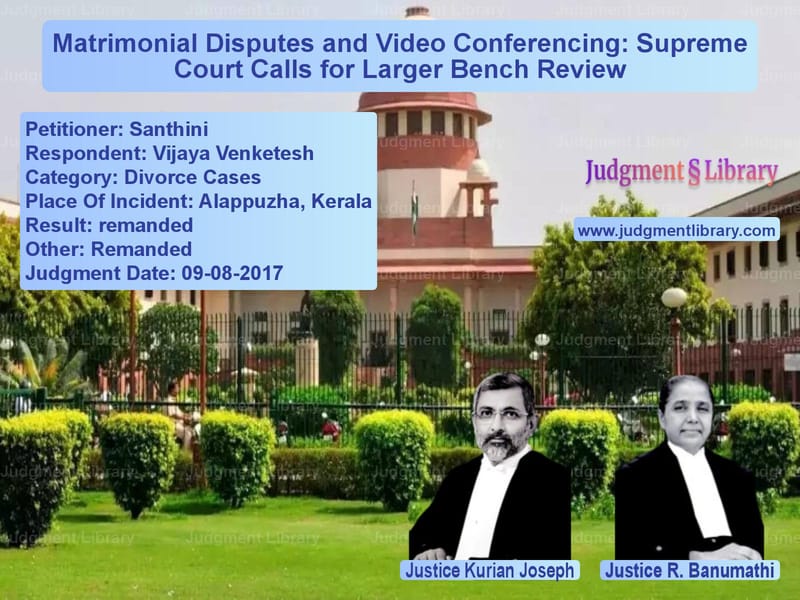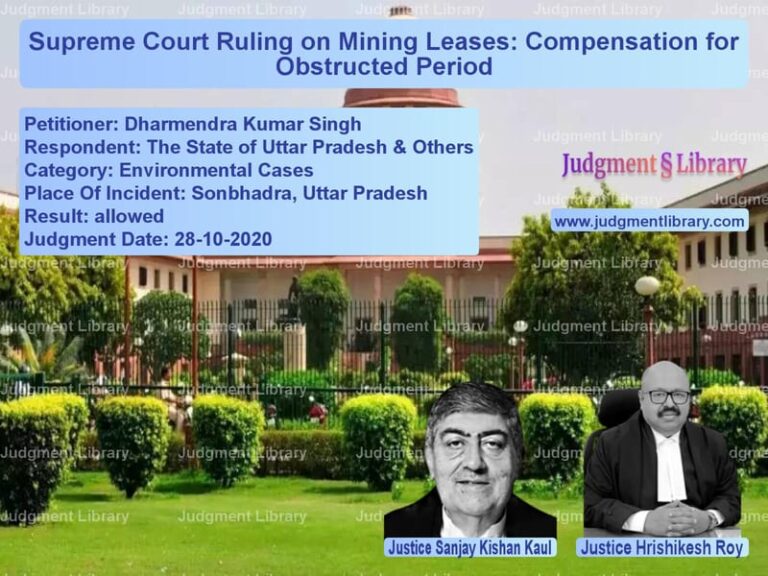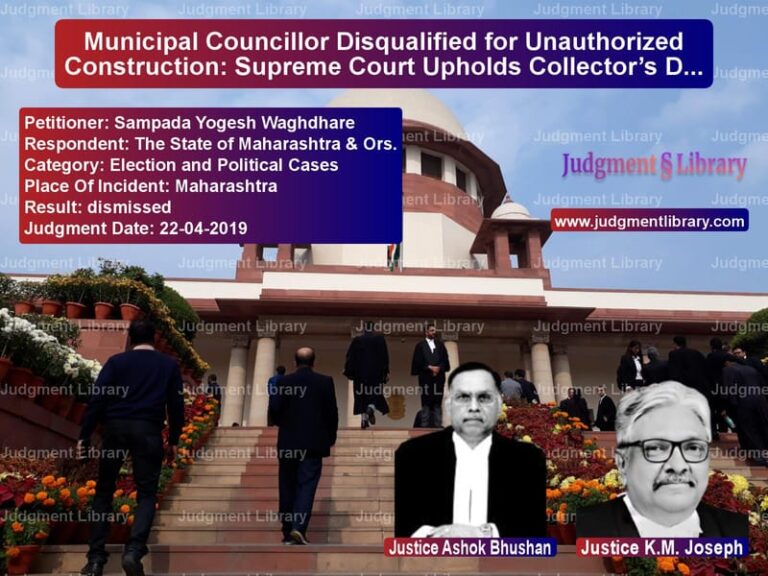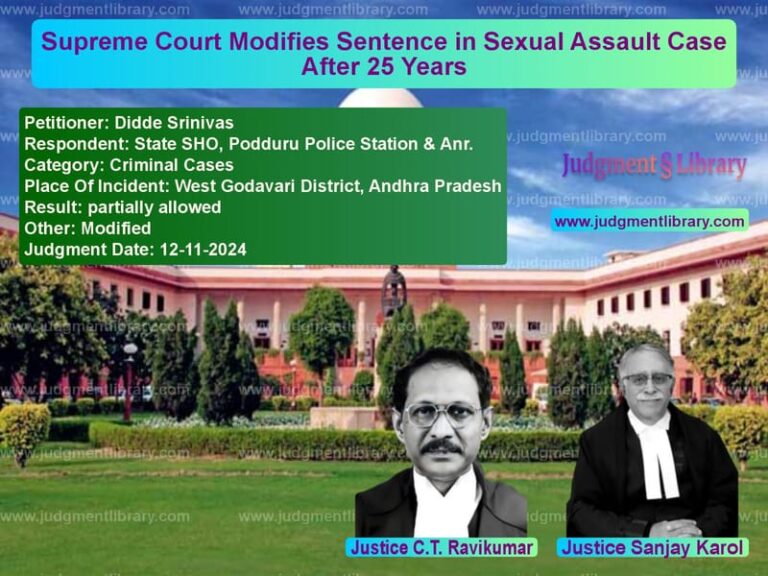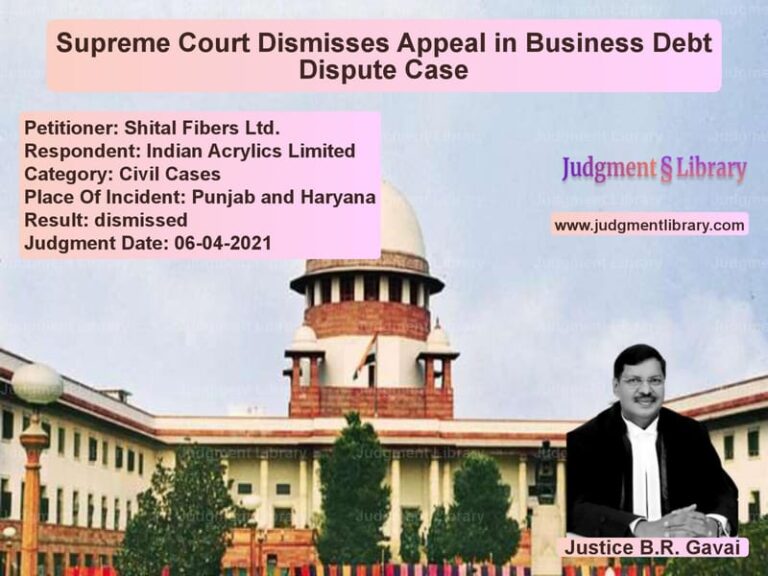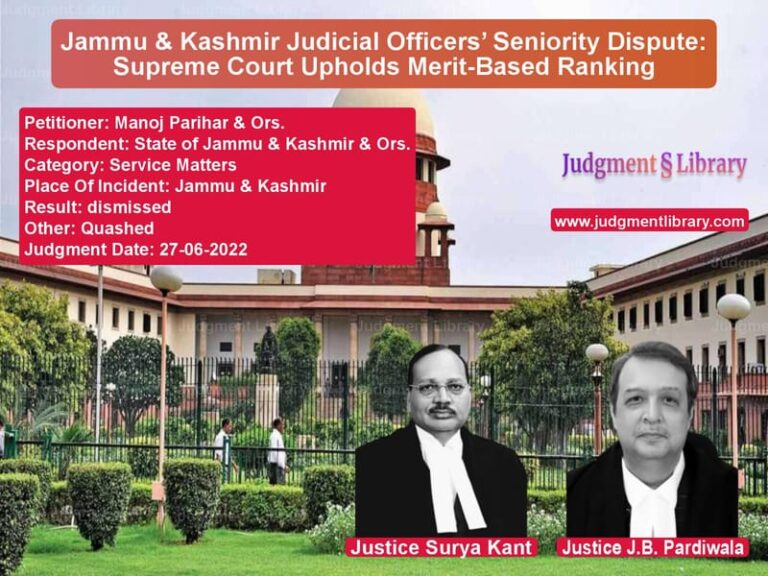Matrimonial Disputes and Video Conferencing: Supreme Court Calls for Larger Bench Review
The case of Santhini vs. Vijaya Venketesh revolved around the transfer of matrimonial proceedings from one family court to another. The Supreme Court examined whether video conferencing could be an alternative to physical presence in family law cases. The issue was particularly significant given the earlier ruling in Krishna Veni Nagam vs. Harish Nagam, where the Court allowed matrimonial disputes to be handled via video conferencing.
The petitioner sought the transfer of a divorce case and a child custody case from the Family Court in Alappuzha, Kerala, to the Family Court in Chennai, Tamil Nadu, citing difficulties in attending hearings in Kerala. The respondent argued that the case need not be transferred and that video conferencing should be used instead.
Arguments Presented
Petitioner’s Arguments
The petitioner contended that:
- Attending hearings in Kerala was burdensome and unfair.
- Family disputes require a personal, conciliatory approach that cannot be effectively handled via video conferencing.
- The essence of family court proceedings is settlement and reconciliation, which is difficult to achieve remotely.
Respondent’s Arguments
The respondent relied on the decision in Krishna Veni Nagam and argued that:
- Video conferencing was a viable solution to avoid unnecessary transfer of cases.
- The burden of travel could be mitigated using modern technology.
- Courts across India were adopting video conferencing in family law matters, and the petitioner should not be given an exception.
Supreme Court’s Observations
The Supreme Court questioned whether video conferencing was suitable for matrimonial disputes, stating:
“The role of a counsellor in Family Court is basically to find out what is the area of incompatibility between the spouses, whether the parties are under the influence of anybody or for that matter addicted to anything which affects the normal family life.”
The Court emphasized the importance of in-person reconciliation efforts:
“To what extent the confidence and confidentiality will be safeguarded and protected in video conferencing, particularly when efforts are taken by the counsellors, welfare experts, and for that matter, the court itself for reconciliation, is a serious issue to be considered.”
Final Judgment
The Supreme Court referred the matter to a larger bench for reconsideration of the ruling in Krishna Veni Nagam. The Court concluded:
“We are of the view that the directions issued by this Court in Krishna Veni Nagam need reconsideration on the aspect of video conferencing in matrimonial disputes.”
The Chief Justice was requested to constitute a larger bench to address the matter urgently.
Don’t miss out on the full details! Download the complete judgment in PDF format below and gain valuable insights instantly!
Download Judgment: Santhini vs Vijaya Venketesh Supreme Court of India Judgment Dated 09-08-2017.pdf
Direct Downlaod Judgment: Direct downlaod this Judgment
See all petitions in Child Custody
See all petitions in Mutual Consent Divorce
See all petitions in Domestic Violence
See all petitions in Judgment by Kurian Joseph
See all petitions in Judgment by R. Banumathi
See all petitions in Remanded
See all petitions in Remanded
See all petitions in supreme court of India judgments August 2017
See all petitions in 2017 judgments
See all posts in Divorce Cases Category
See all allowed petitions in Divorce Cases Category
See all Dismissed petitions in Divorce Cases Category
See all partially allowed petitions in Divorce Cases Category

